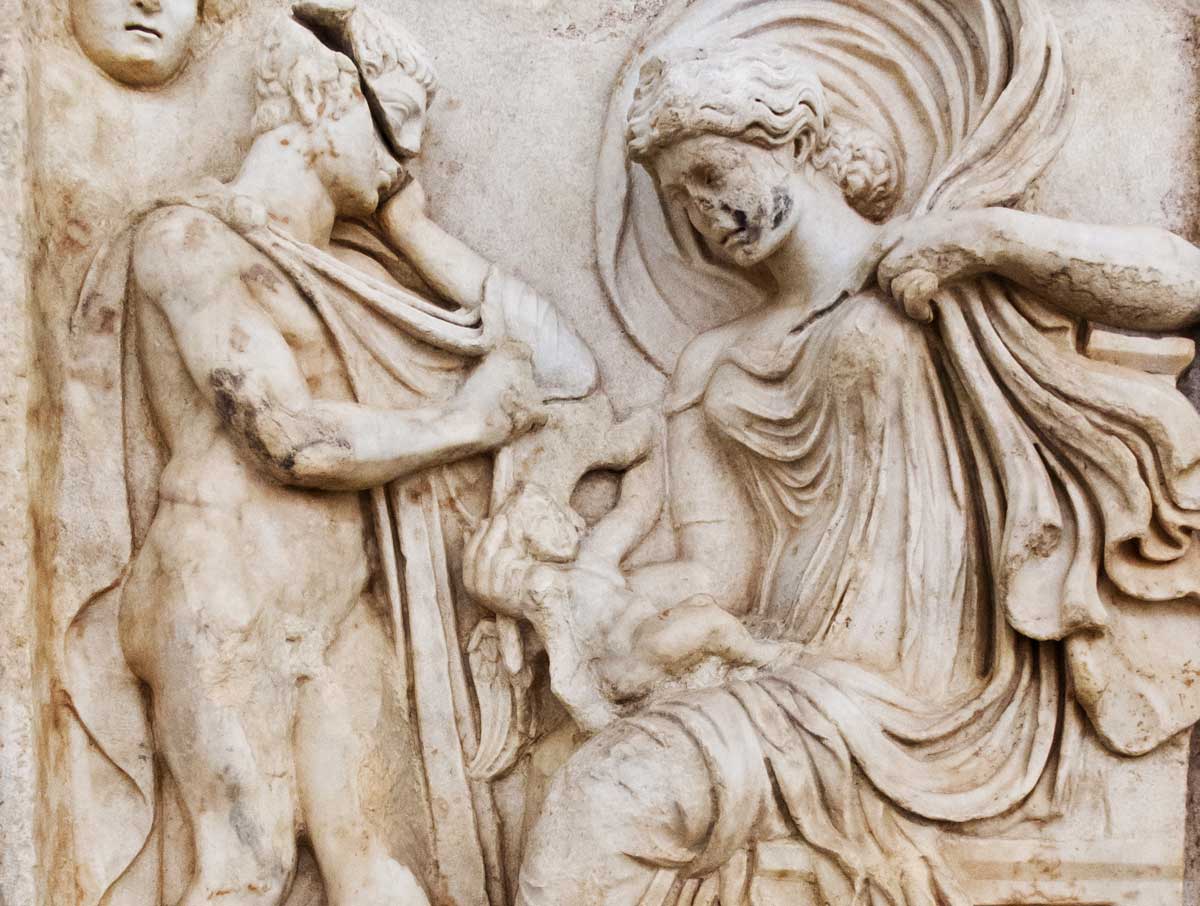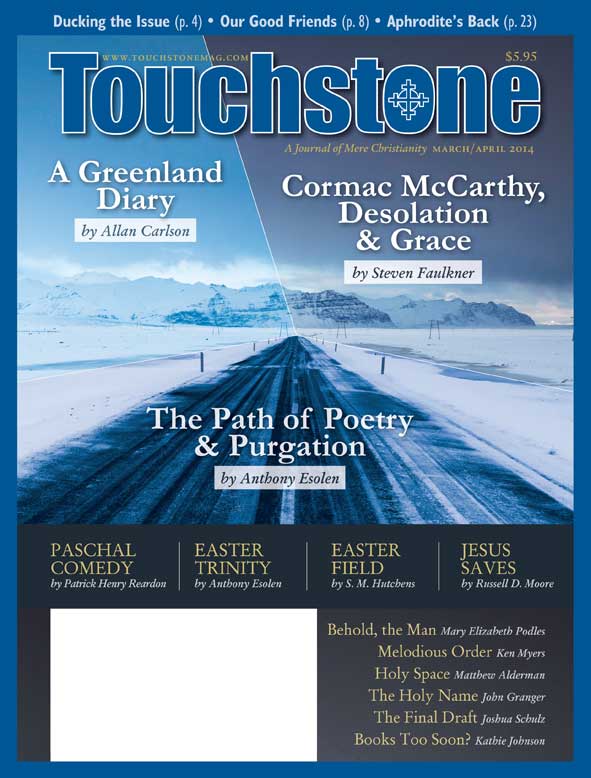VIEW
The Rights of Aphrodite
W. E. Knickerbocker on C. S. Lewis & the New State Paganism
In the essay "We Have No 'Right To Happiness,'" C. S. Lewis tells his readers of a conversation he had with a woman who was one of his neighbors. The subject of the discussion was two neighbor couples, Mr. and Mrs. A and Mr. and Mrs. B. Mr. A had divorced Mrs. A to marry Mrs. B, who had divorced Mr. B. Mrs. A's looks were not what they once were, one cause of which was the number of children she had borne to Mr. A. Mr. B had been disabled in the war and was out of a job. The neighbor with whom Lewis was having the conversation justified these divorces and the remarriage by saying that Mr. A and Mrs. B "had a right to happiness."
Lewis says the neighbor who justified this behavior was "rather leftist" in her politics and a teetotaler, who would certainly not approve of a ruthless businessman whose happiness consisted in making money or of an alcoholic who was happy when he was drunk. Rather, the happiness to which this neighbor said Mr. A and Mrs. B had a right was solely "sexual happiness." The right to sexual happiness justified breaking vows solemnly made and legally validated.
In the course of this essay, Lewis refers, as he often does in other writings, to natural law, which he sometimes calls the Law of Human Behavior (Mere Christianity, ch. 1). He goes into greater detail about this law in The Abolition of Man, there contending that it has been proclaimed in various ways by all the great religions and philosophies. All of them recognize that our ability to know how we should behave is greater than our ability to behave as we should, but, he argues, this is no excuse for discounting the natural law, which is accessible to all people—what St. Paul calls the law written on the hearts and consciences of the Gentiles (Rom. 2:14–15).
In a direct reference to American culture, Lewis cites the Declaration of Independence and its statement about "the pursuit of happiness." He then says,
And now we get to the real point. What did the writers of that august declaration mean? It is quite certain what they did not mean. They did not mean that man was entitled to pursue happiness by any and every means—including, say, murder, rape, robbery, treason and fraud. No society could be built on such a basis. They meant "to pursue happiness by lawful means"; that is, by all means which the Law of Nature eternally sanctions and which the laws of the nation shall sanction.
In modern culture, however, this law of nature is disregarded precisely with respect to the issue with which Lewis introduced his essay—the issue of sexual happiness.

Goddess of the New Paganism
It is here that we begin to see the nature of the new paganism. Like any paganism, it has its pantheon of gods and goddesses. At the top of its pantheon is a modern version of Aphrodite, the Greek goddess of love, who has become here a goddess of sex. She gives her Greek name to the aphrodisiacs so prevalent in our culture, and her Roman name, Venus, to the diseases that are prevalent among her worshipers—or at least she did before venereal afflictions became euphemized as STDs.
She has also succeeded in banishing Hymen, the god of marriage, to the periphery of our culture. She has enlisted Mars, the god of war, in her service, but has tamed him to become simply a god of violence, including emotional violence. The emotional experience of violence can both precede and follow the emotional experience of the sex act, especially when that act is a violation of the natural law indelibly imprinted on the conscience.
W. E. Knickerbocker taught Church History and Spiritual Theology at Memphis Theological Seminary for 32 years. He was ordained a Roman Catholic priest under the Pastoral Provision in 2009 and now serves at St. Theresa Catholic Church in Junction, Texas.
subscription options
Order
Print/Online Subscription

Get six issues (one year) of Touchstone PLUS full online access including pdf downloads for only $39.95. That's only $3.34 per month!
Order
Online Only
Subscription

Get a one-year full-access subscription to the Touchstone online archives for only $19.95. That's only $1.66 per month!
bulk subscriptions
Order Touchstone subscriptions in bulk and save $10 per sub! Each subscription includes 6 issues of Touchstone plus full online access to touchstonemag.com—including archives, videos, and pdf downloads of recent issues for only $29.95 each! Great for churches or study groups.
Transactions will be processed on a secure server.
more on abortion from the online archives
more from the online archives
calling all readers
Please Donate
"There are magazines worth reading but few worth saving . . . Touchstone is just such a magazine."
—Alice von Hildebrand
"Here we do not concede one square millimeter of territory to falsehood, folly, contemporary sentimentality, or fashion. We speak the truth, and let God be our judge. . . . Touchstone is the one committedly Christian conservative journal."
—Anthony Esolen, Touchstone senior editor












